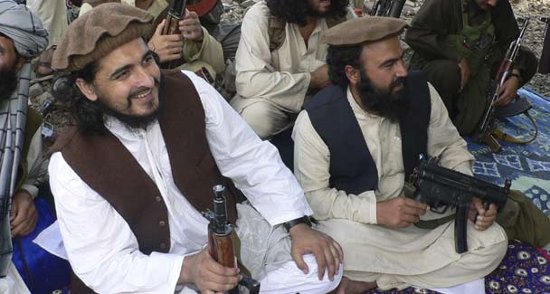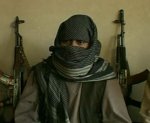Daily Iraq Report for February 28, 2007
The Baghdad Security Plan is showing some early signs of success. Deaths from sectarian related attacks have dropped dramatically since December. "The number of bodies found this month in Baghdad--most shot and showing signs of torture--has dropped by nearly 50 percent to 494 as of Monday, compared with 954 in January," reports the Associated Press. "The figure stood at 1,222 in December, according to figures compiled by The Associated Press." Four additional Iraqi battalions are expected to report to Baghdad over the next two weeks, boosting a security presence.
The U.S. and Iraqi government are working to divide and conquer the Mahdi Army as Muqtada al-Sadr, its leader, is taking shelter in Iran. Sadr's Iranian backed Mahdi Army is behind a significant number of the sectarian murders, and has destabilized the Iraqi government. Asharq Alawsat has confirmed that Multinational Forces Iraq (MNF-I) is "holding talks with commanders of Muqtada al-Sadr's Al-Mahdi Army with the 'Iraqi Government's blessing,'" as well as "several Iraqi armed groups."
Rabita, an Iraqi newspaper, reports that in yesterdays attack at the Ministry of Public Works, the bomb was placed under the seat Vice President Mahdi was to sit at, and the person that detonated the device was inside the ministry. That ministry is run by Muqtada al-Sadr's political bloc, and the speculation is that the attack was a hit by Sadr (I reported this was likely the morning of the attack.) Ghazi Al-Anbari, a ministry undersecretary, died from wounds sustained in the attack.
The Habbaniyah bombing last weekend highlights the divisions within the Sunni community and in the insurgency in Anbar province. "Senior commanders of the Islamic Army in Iraq, the Jaish Al-Mujahideen and the 1920 Revolution Brigades" were killed in the Habbaniyah bombings last weekend, according to the Al-Badeel Al-Iraqi website. The tribal leaders were upset and cursed al Qaeda for the attack. "May God expose the privates of their women and families, like they have done to ours,"� said the son of an Al-Bu Nimir clan leader.
On the security front, Iraqi and Coalition forces continue to target al Qaeda cells, and have pressed operations against the violent Shia cult known as the Army of Heaven. The Coalition killed 8 al Qaeda and captured six during raids in Baghdad, Taji, and Amiriyah. Samarra police detained 4 members of an IED cell. Iraqi police and Army units inn Diwaniyah captured 157 members of the Mahdawiyah, or Army of Heaven, the apocalyptic Shia cult that attempted to killed pilgrims in Najaf at the end of January. The Hilla SWAT police captured another 8 members of the cult. The terrorists struck back as 10 were killed and at least 20 were wounded in a carbomb attack in a market in Baghdad.
On the Iran front, Mike McConnell, the new director of National Intelligence, told the Senate Armed Services Committee "it was 'probable' that Iranian leaders including Ayatollah Ali Khamenei were aware that weapons known as explosively formed penetrators, or EFPs, had been supplied to Iraqi Shi'ites." Iran is also considering joining a regional summit hosted by Iraq, which will include Syria and the United States.
The referendum on the fate oil producing city of Kirkuk has been delayed for two year, reports Azzam. The Kurds and Turkmen have fought over the status of the city. The Kurds want to Kirkuk to be a part of the semi-autonomous Kurdish confederation.


